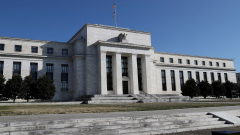Faith-aligned giving has long been a cornerstone of philanthropy in Asia-Pacific and India is no exception. Rooted in religious and spiritual traditions, ethics, and belief systems, both individuals and institutions harness the values of compassion, stewardship, and service to address social and environmental challenges.
| Company | Value | Change | %Change |
|---|
By integrating spiritual principles with pragmatic solutions, faith-aligned philanthropy and investing have the potential to be an even more powerful driver of sustainable growth grounded in and enabled by resilient communities. There are several examples where faith-aligned philanthropy is inclusive and transcends religious boundaries to address the needs of underserved populations irrespective of their faith.
The Tzu Chi Foundation, grounded in Buddhist values, provides healthcare, education, and disaster relief to communities worldwide without discrimination. Similarly, Bank Islam’s Sadaqa House, a Shariah-compliant crowdfunding platform, extends financial support to underprivileged communities of all faiths. These examples underscore the universality of faith-aligned giving and its commitment to humanity’s shared well-being.
Catalysing Long-Term Impact through Faith-Aligned Giving
The potential of faith-aligned giving extends far beyond immediate relief efforts. When strategically aligned with the Sustainable Development Goals (SDGs), it can drive systemic change and address critical challenges such as poverty, climate change, and inequality. For example, the annual global zakat pool alone is estimated to exceed USD 200 billion.
The SDGs face a staggering annual funding gap of USD 2.5 trillion in the world’s developing countries. By directing faith-aligned resources towards achieving these targets, stakeholders can advance solutions in sustainable energy, education, and healthcare. Faith-aligned actors, guided by values of stewardship and justice, are particularly well-positioned to address these gaps with initiatives that prioritise long-term, community-centred outcomes over short-term gains.
Art of Living, for instance, has undertaken long-term projects that help conserve the environment. The organisation’s ‘Mission Green Earth’ initiative has facilitated the planting of 55 million trees across 36 countries in collaboration with the United Nations Millennium Campaign (UNMC) and the UN Environment Program (UNEP). The campaign is indicative of faith-aligned institutions’ potential for driving action





